Every other week, beginning July 22 and continuing through October 14, we’ll convene for two hours of engaging presentations, interactive discussions, and brainstorming sessions. Once registered, you’ll receive a link that will connect you to the full schedule of sessions and links in the BME-IDEA 2020 series.
Each session will be presented twice: a Main and an Alternate session so that participants from different time zones may attend. Each Main Session will be presented live at the published time; recordings of Main Sessions will be provided to all registered participants soon after each session. Alternate Sessions will be a shorter, live session at the published time indicated.
Schedule details are subject to change.
july 22
Welcome and Introduction
10:00 AM-12:00 PM ET
Alternative Session: July 23, 8:00 PM – 9:00 PM ET
Welcome to BME-IDEA 2020! This session is the kick-off to a series of 7 sessions, each focused on a different topic of importance to educators in BME Design. In this session, we’ll hear from our Keynote speaker, Josh Makower, one of the most successful innovators and entrepreneurs in the medical device space, and an experienced educator. In addition, goals of this session are to familiarize you with BME-IDEA, to provide a preview of the series sessions, and to network and get to know each other. Please join us!
august 5
Teaching Capstone in a Remote Model
10:00 AM- 12:00 PM ET
Alternative Session: August 5, 8:00 PM – 9:00 PM ET.
Although the goals of your design course have not changed, the world certainly has, and online is the new teaching modality of choice. But how do engage students in true design activities such as customer discovery, prototyping and team interactions, and how as a teacher might you develop an impactful remote experience, conduct assessments and provide the resources and tools for your students? Come to this session, and engage with keynote speakers to hear about tools and tips, and be a part of interactive breakout sessions with your colleagues to share best practices for your new online or hybrid design program.
Hosted By:
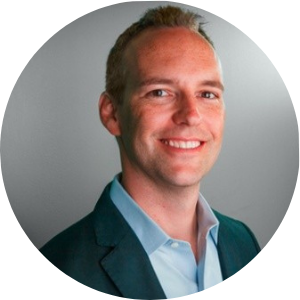 James Rains
James Rains
Professor of the Practice
Georgia Tech
 John DesJardins
John DesJardins
Robert B. and Susan B. Hambright Leadership Professor
Clemson University
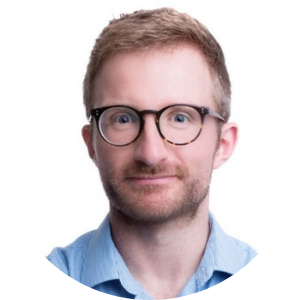 Matt Oldakowski
Matt Oldakowski
Director at Perth Biodesign
Perth Biodesign
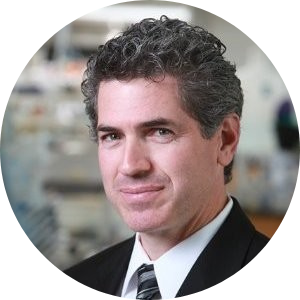 Eric Ledet
Eric Ledet
Professor
Rensselaer Polytechnic Institute
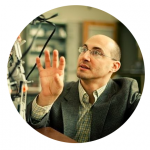 Joseph Tranquillo
Joseph Tranquillo
Professor of Biomedical Engineering
Bucknell University
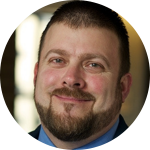 Jason Zara
Jason Zara
Professor, Associate Chair for Academic Affairs
George Washington University
august 19
The Role of Academic-Industry Partnerships in the Post-COVID Health Care Industry: Directions, Opportunities, New Models
8:00 PM-10:00 PM ET
Alternative Session: August 20, 10:00 AM – 12:00 PM ET
The healthtech industry has changed dramatically over the last several months in response to the Corona pandemic. Operations, procedures, and priorities have evolved rapidly and it is likely that many of these adaptations will become the new normal. How will biomedical engineers adapt and thrive? What are the skills and qualities needed from the workforce to respond to this changing environment? How should we be preparing biomedical engineering students to be successful in this new paradigm?
This interactive session will bring together healthtech industry leaders and faculty from around the world to discuss recent paradigm shifts and how academic-industry relationships can shape the future of the healthtech industry.
Join us for a panel discussion, breakout roundtable discussions, and didactic content.
Hosted By:
 Eric Ledet
Eric Ledet
Professor
Rensselaer Polytechnic Institute
 Youseph Yazdi
Youseph Yazdi
Executive Director
The Johns Hopkins Center for Bioengineering Innovation and Design (CBID)
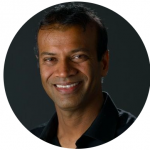 Anurag Mairal
Anurag Mairal
Professor
Stanford University
Guest Speakers:
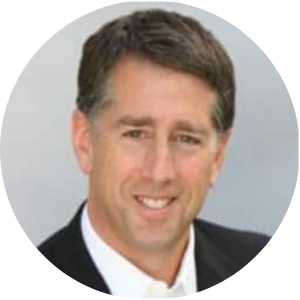 Erik Engelson
Erik Engelson
Founder and CEO
Lucira
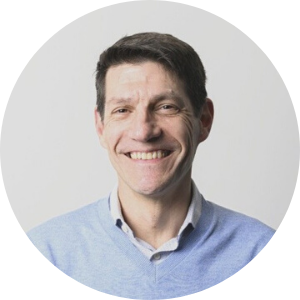 Jacob Einhorn
Jacob Einhorn
COO
Intrinsic Therapeutics
 Abel Ang
Abel Ang
CEO
Advanced MedTech
september 1
Diversity in Biomedical Engineering Design
8:00 PM-10:00 PM ET
Alternative Session: September 3, 10:00 AM-11:00 AM ET
How can we harness the creative power of sex, gender, race, and intersectional analysis (exploring the connections of these and other factors) for discovery and innovation? In this session, we’ll address three strategic approaches to diversity in biomedical engineering: 1) “Fix the Numbers” focuses on increasing the numbers of women and underrepresented minorities on design teams; 2) “Fix the Institutions” promotes equality in careers through structural change in organizations; and 3) “Fix the Knowledge” stimulates excellence by explicitly integrating intersectional analysis into design projects.
We’ll start with an interactive exploration of design methods that incorporate intersectional approaches—considering whether your design will work for people of diverse genders, ethnicities, socioeconomic status, ages, etc. Participants will work in groups to consider case studies from other fields and brainstorm health technology examples that we can use to educate and inspire our students. Then, we’ll reconvene to discuss strategies for increasing diversity on our design teams while equipping and empowering all team members, regardless of their personal demographics, to be more thoughtful about diversity and inclusivity in the health technology field.
Hosted by:
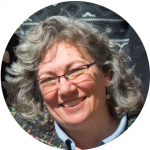 Amy Lerner
Amy Lerner
Associate Professor, Biomedical Engineering
University of Rochester
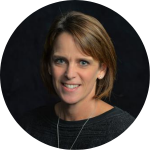 Lyn Denend
Lyn Denend
Director for Academic Programs
Stanford Biodesign
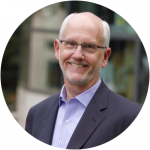 Paul Yock
Paul Yock
Director
Stanford Biodesign
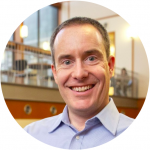 Moose O’Donnell
Moose O’Donnell
Executive Director, Master of Translational Medicine Program
UC Berkeley
Guest Speakers:

Aaron Kyle
Senior Lecturer of Biomedical Engineering
Columbia University
 Londa Schiebinger
Londa Schiebinger
The John L. Hinds Professor of History of Science and Director, Gendered Innovations in Science, Health & Medicine, Engineering, and Environment
Stanford University
september 16
Supporting Design Projects post-graduation
1:00PM-3:00PM ET
Alternative Session: 8:00PM-9:00PM ET
Experiential BME design instruction focuses teams on solving real-world problems. How should the most promising teams be supported to go beyond the course or instructional environment? This session hosted by VentureWell will draw on the decades of student team experiences to highlight 1) What early-stage progress looks like and how to measure success in the early stages 2) What forms of support are most important as teams move from an idea to a validated technology to a compelling product 3) How to create support mechanisms that are durable and efficient.
Hosted by:
 Phil Weilerstein
Phil Weilerstein
CEO
VentureWell
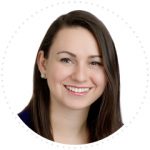 Christina Tamer
Christina Tamer
Senior Program Officer
VentureWell
Guest Panelists:
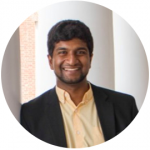 Ashwinraj Karthikeyan
Ashwinraj Karthikeyan
CEO
InMEDBio
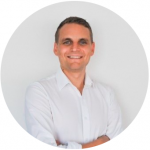 Alex Newton
Alex Newton
CEO
Navi Medical Technologies
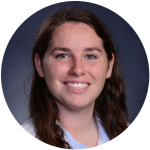 Katie Solley
Katie Solley
CEO
Eyedea
september 30
Clinical Immersion / Clinical Partnerships
1:00PM-3:00PM ET
Alternative Session: 8:00PM-9:00PM ET
Clinicians can be a great source of problem ideas for students, but they can also be innovators. The collaborations between a senior design team and their clinician can become complicated when the IP, design ideas, and expectations shift between what the clinician wants vs. what the design team develops. Now, in the virtual environment, clinical partnerships and interactions present new opportunities and challenges. In this session, we will explore NEW best practices for working with clinician-innovators as part of your design program, and for your design teams.
Hosted by:
 Youseph Yazdi
Youseph Yazdi
Executive Director
The Johns Hopkins Center for Bioengineering Innovation and Design (CBID)
 John DesJardins
John DesJardins
Robert B. and Susan B. Hambright Leadership Professor
Clemson University
 James Rains
James Rains
Professor of the Practice
Georgia Tech
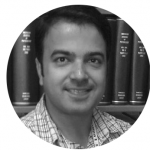 Soumyadipta Acharya
Soumyadipta Acharya
Graduate Program Director
Johns Hopkins Center for Bioengineering Innovation and Design
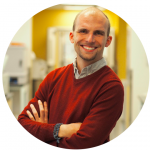 Kyle Cowdrick
Kyle Cowdrick
Medical Device Innovator
Georgia Tech
october 13
Closing
6:00PM-8:00PM ET
Alternative Session: Wednesday, October 14, 8:30AM-9:30AM ET
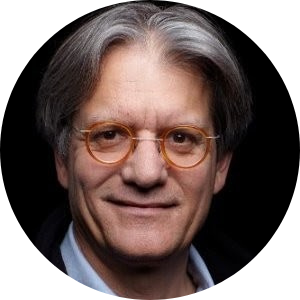 Join us in this session to celebrate a successful BME IDEA 2020. We will review the highlights of lessons learned over the course of this year’s event in a series of “Best of BME-IDEA” mini-panels.
Join us in this session to celebrate a successful BME IDEA 2020. We will review the highlights of lessons learned over the course of this year’s event in a series of “Best of BME-IDEA” mini-panels.
We’ll also hear from our Keynote Speaker, Dennis Boyle, Partner and a founding member of IDEO, about COVID-related innovations and post-COVID changes in medical care. Based in Palo Alto, Dennis leads the Health and Wellness practice, which works with clients in the medical and consumer health-care industries to develop innovative products and strategies for promoting healthful living and behavior change. Dennis is a consulting assistant professor for the Design Division of Stanford University’s Mechanical Engineering School, where he’s contributed to courses on product, engineering, and human factors design, as well as design for sustainability and creativity and innovation.
We will close out this year’s event with an interactive discussion on practical ways we can improve our work and our global family in BME Design.
Session Hosts:
 Phil Weilerstein
Phil Weilerstein
CEO
VentureWell
 Youseph Yazdi
Youseph Yazdi
Executive Director
The Johns Hopkins Center for Bioengineering Innovation and Design (CBID)
 John DesJardins
John DesJardins
Robert B. and Susan B. Hambright Leadership Professor
Clemson University
 James Rains
James Rains
Professor of the Practice
Georgia Tech
 Amy Lerner
Amy Lerner
Associate Professor, Biomedical Engineering
University of Rochester
 Lyn Denend
Lyn Denend
Director for Academic Programs
Stanford Biodesign
 Paul Yock
Paul Yock
Director
Stanford Biodesign
 Moose O’Donnell
Moose O’Donnell
Executive Director, Master of Translational Medicine Program
UC Berkeley
 Eric Ledet
Eric Ledet
Professor
Rensselaer Polytechnic Institute